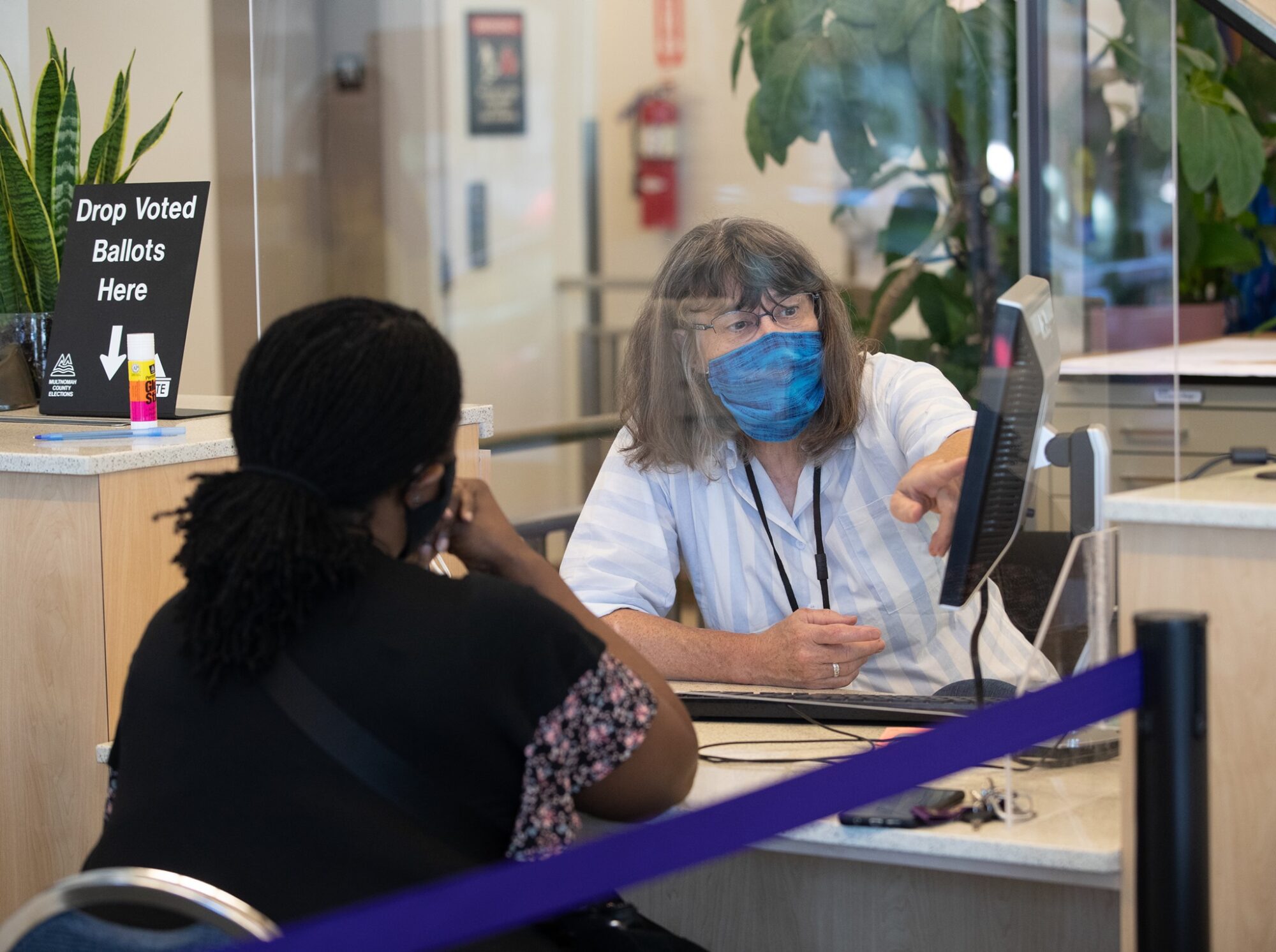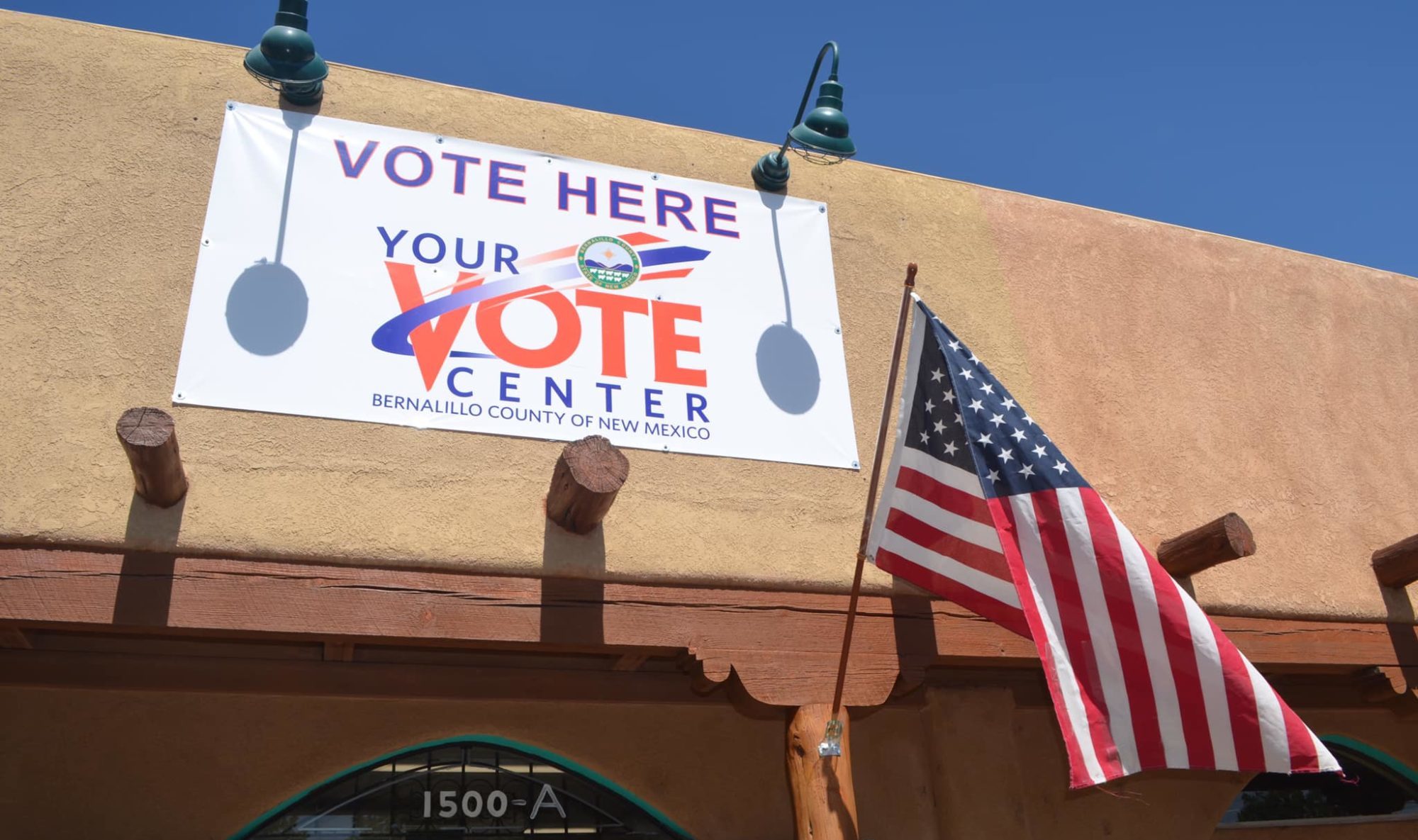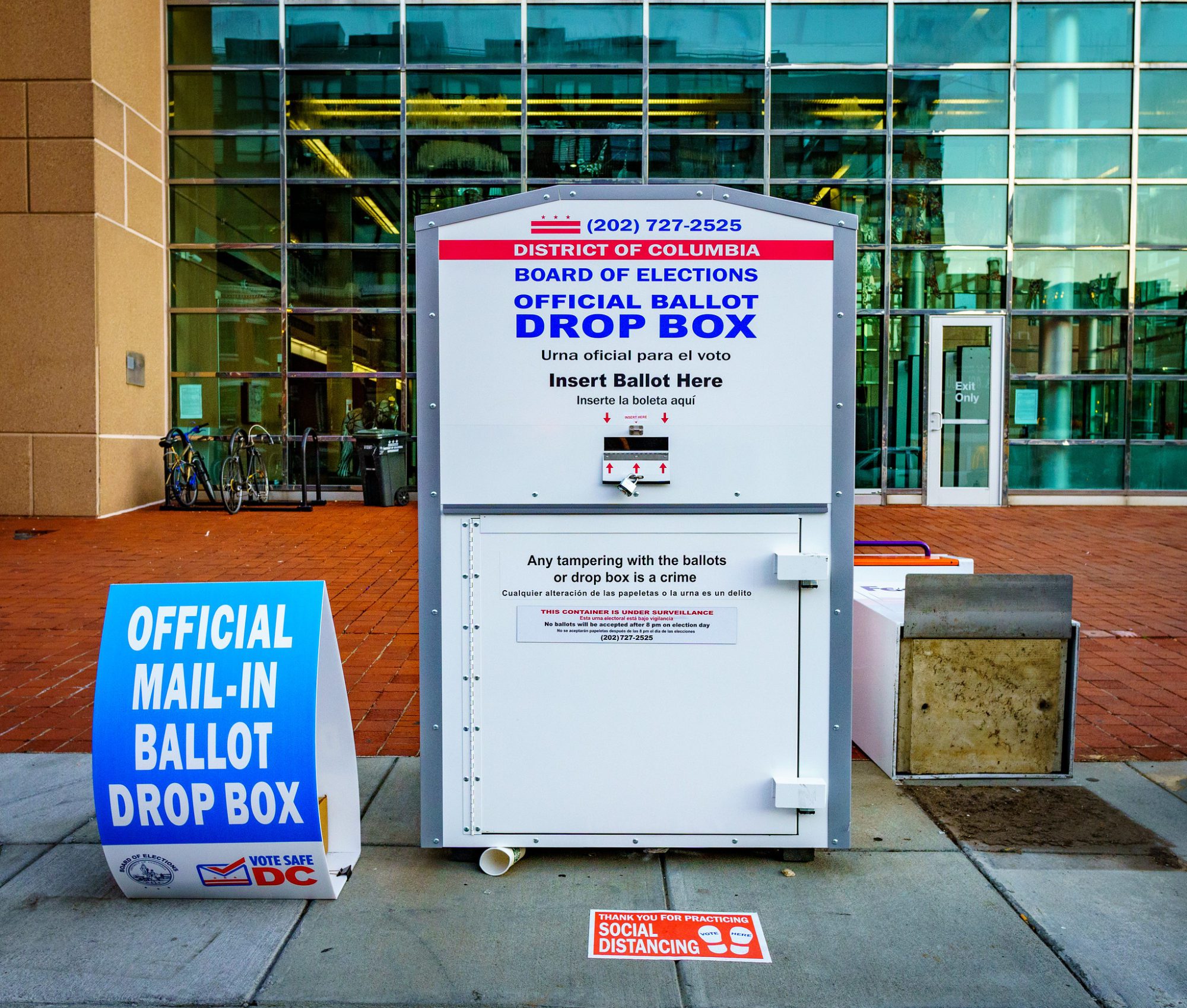Oregon Wants to Register Medicaid Recipients to Vote. Will Biden Officials Allow It?
The federal government has for years been stalling similar efforts to automatically register lower-income residents to vote in Colorado and other states.
Alex Burness | July 11, 2023


Editor’s note (August 2023): Oregon Governor Tina Kotek signed House Bill 2107 into law on Aug. 1.
Lawmakers in Oregon, a state that already leads the nation in electoral engagement, adopted legislation this summer that would make voting even more inclusive. If it is signed into law by the state’s Democratic governor, House Bill 2107 would instruct state Medicaid offices to automatically register people to vote when they open or renew a health plan.
The bill could add tens of thousands of people to voter rolls by allowing the Oregon Health Authority to forward basic information it collects from people applying for Medicaid coverage—age, residence, and citizenship status—to election officials. These officials would then use it to register anyone who is eligible to vote and but not already signed up to do so.
This process, which would still give people the chance to decline being registered, is nearly identical to Oregon’s existing system of automatically registering people. But that system only applies at the Driver and Motor Vehicle Services department, leaving out Oregonians who don’t visit the DMV.
“Voter registration shouldn’t be dependent on going to the DMV, because not everybody does,” said Isabela Villarreal, policy director for Next Up Action Fund, a group that helped bring automatic voter registration to Oregon in 2015, explaining that lower-income and younger Oregonians are less likely to use DMV services. “We just want to make sure we’re capturing every single person and allowing them to participate.”
According to the secretary of state’s office, 85 percent of all Oregonians who are not registered are enrolled in Medicaid, a program that serves people living near or below the federal poverty line. That’s roughly 170,000 people in this state of 4.2 million who could be added to the voter rolls if the state began automatically registering Medicaid recipients.
“This is a critical opportunity to register people that have been historically and currently excluded from our electoral systems,” Villarreal said.
The reform, however, comes with a catch: It would not actually change anything unless Oregon wins the blessing of the federal government, which for years has held up similar proposals in other states and told Bolts it’s still reviewing the issue. Medicaid is a program administered by states but regulated by the federal government, which largely bars a state’s Medicaid office from disclosing information to other agencies without the U.S. Department of Health and Human Services’ authorization.
Colorado, for one, adopted a reform similar to Oregon’s in 2019, only to see the federal agency that administers Medicaid stall its application over privacy concerns. Colorado’s secretary of state, Democrat Jena Griswold, shared her frustration with Bolts last week, saying she struggles to even get answers from federal officials. “It would be great for Colorado to implement it,” she said. “We should be working to streamline people’s interactions with the government.”
Advocates for expanding voter registration hope that the growing number of states seeking to automatically register Medicaid recipients will motivate the Biden administration to revisit its stance and greenlight new reforms in Colorado, Oregon, and elsewhere.
Oregon eight years ago became the first state to adopt automatic voter registration, or AVR, and today similar systems exist in almost half of U.S. states. The design differs greatly by state, but the core idea is simple: Instead of expecting people to take proactive steps to register, a government agency uses the information they already collect to register people, while still giving them an opportunity to opt out.
AVR has been proven to boost registration and turnout, and make the electorate more diverse. In Oregon, roughly 94 percent of eligible residents are now registered to vote.
But in Oregon, as in many states, AVR is limited to people who visit the DMV, an agency with which many people, especially low-income residents, just don’t interact. Oregon voting rights advocates say this helps explain why nearly 200,000 eligible voters in the state—roughly 6 percent of the voting-eligible population—remain unregistered. They’re hoping that reaching Medicaid recipients gets the state closer to universal registration.
Sylvia Albert, director of voting and elections at Common Cause, a national voter advocacy organization, says including Medicaid recipients would make AVR systems far more inclusive.
“These are the people who generally fall through the cracks in our voter registration system: people who might be more transient, people who are less affluent, people who are unable to take time off work to go vote, older individuals who don’t have their documentation in order,” she told Bolts. “These are the type of people that, in general, face more barriers to the ballot. If we can reach those people with something like this, I don’t see a reason why we wouldn’t.”
Oregon Governor Tina Kotek, who has until late July to take action on HB 2107, did not respond to questions for this story. Local observers told Bolts they expect she will sign the legislation.
Several other states, including Colorado, Massachusetts, Nevada and New Mexico, have already had the same idea and passed legislation to extend AVR systems to government health programs. “The DMV seemed like the big first place to get the most people registered,” Griswold, the secretary of state of Colorado, told Bolts. “We believe Medicaid is that second place.”
But the Centers for Medicare and Medicaid Services (CMS), the federal agency housed within HHS that oversees the Medicaid program, has left most of those states in limbo for years. Oregon may be next, as state officials there say HB 2107 cannot be implemented without CMS authorization.
CMS rules bar state Medicaid agencies from using or disclosing client data for purposes that are not directly connected to the Medicaid program, but a state can request a waiver to implement a specific proposal, or ask CMS to determine that the way in which it plans to use the data is indeed legitimately connected to health care administration. Medicaid law experts say the prohibition exists to protect people from having their information used against them—police can’t turn to Medicaid for a person’s last known address, for instance, nor can prosecutors in states that punish abortion patients.
Colorado’s attempt to implement AVR through Medicaid has gone nowhere since 2019, first under the Trump administration through early 2021, and then under the Biden administration. When Colorado U.S. Senator Michael Bennet wrote a letter to CMS last year imploring the agency to green-light Colorado’s reform, CMS Administrator Chiquita Brooks-LaSure wrote back that the agency “had previously concluded that [the state’s proposal] appears to be inconsistent with the Medicaid privacy protections in current laws and regulations.”
But Brooks-LaSure, who was nominated to the position by President Biden, also referred to an executive order Biden issued soon after his inauguration directing all agency heads to “evaluate ways in which the agency can, as appropriate and consistent with applicable law, promote voter registration and voter participation.” Brooks-LaSure added that CMS is “exploring opportunities to enhance Medicaid’s role in promoting voter registration.”
CMS told Bolts in a statement on Monday that “this issue is under review.”
CMS did not say whether it had reached any new conclusion since Brooks-LaSure’s letter to Bennet more than a year ago. When Bolts first reached out to CMS seeking clarity, the agency said in a statement that AVR systems “may” breach Medicaid’s confidentiality rules but a CMS spokesperson reached out days later to say the agency’s initial response had been rushed and “provided in error,” and reflected the view of the Trump administration. The agency then issued another statement that kept the door open to new state initiatives.
“In keeping with the President Biden’s Executive Order directing federal agencies to promote access to voting, we recognize the importance of state Medicaid agencies assisting in expanding voter access and registration activities for the populations they serve,” CMS said.
CMS did not reply to follow-ups requesting more information about its review process.
The picture gets fuzzier considering Medicaid services are already automatically registering people in Massachusetts. States Newsroom reported last week that the state had seen a large jump in registration as a result.
Michelle Tassinari, an attorney in the Massachusetts Secretary of State’s office, told Bolts she is confident that the state is compliant with federal rules because Massachusetts asks people, during their initial interactions with the health agency, if they’d prefer that their information not be used for the purpose of voter registration. Washington state also registers people through its health agency using a similar approach, a process known as “front-end” AVR.
Automatic voter registration looks different in Oregon, as well as in Colorado. Instead of being asked if they want to opt out of registering during their transaction with an agency, prospective voters receive a mailer later on; they must respond to it if they do not wish to be registered. Data show that this approach, known as a “back-end” system, registers many more people to vote than when people are asked up-front, and more states have been switching to this model.
CMS did not answer Bolts’ questions when asked if these design distinctions were relevant to how the federal government is assessing state-level AVR programs.
This confusion reflects what officials in the states that are in limbo have experienced.
Griswold told Bolts that she’d be happy to hear the federal agency’s specific concerns and reach a workable solution, including by adjusting the exact design of Colorado’s system, but that CMS hasn’t even created the opportunity or shared precise feedback.
“We do not see a big difference between AVR at the DMV versus at Medicaid offices,” Griswold said. “If CMS thinks there’s a big difference, we can always address that in the law, we can go back and tighten the law if they want. But they need to give us guidance.”
Griswold doesn’t dispute the importance of protecting privacy but she believes this isn’t that complicated or fraught. “I think you can design the system where states never interact with the underlying data,” she said. “We do not need to know anything about people’s medical information, nor do we want to know that information.”
Other election experts also point out that the design of existing AVR systems already integrates privacy protections. The goal, they say, is to make use of data the government already collects without weaponizing it.
“If it’s administered correctly, I don’t see it being any different than [automatic voter registration] through the DMV,” Lacey Donaldson, the elected clerk in Pershing County, Nevada, and the head of that state’s county clerk association, told Bolts. Nevada’s plans for automatic registration of Medicaid recipients is also in limbo due to CMS.
One difference between the DMV and health services is that Medicaid recipients interact with the state more frequently. In Oregon, Medicaid recipients must renew their plans and update their information—including their mailing address—annually, whereas many people go years without visiting the DMV. This means that administering an AVR system through Medicaid would be likelier to keep voter rolls up-to-date.
“This is a win-win-win-win for lots of different people,” says Amber McReynolds, a national expert in election procedures who was appointed to the U.S. Postal Service Board of Governors by Biden. “The people who want to make sure more people are registered to vote, for people who care about making sure voters addresses are accurate, for people who want more efficient government. It’s one of these concepts I always think that everybody should like.”
In Oregon, the concept was championed by Shemia Fagan while she was secretary of state. Fagan, a Democrat, resigned in May after Willamette Week revealed she’d been accepting lucrative consultant payments from cannabis entrepreneurs who have been top donors to her political career. Still, the legislation passed based on strong support from Democratic lawmakers who run both chambers; Republicans opposed the legislation.
Other states may soon join the CMS waiting chamber. A new bill introduced last month in New Jersey proposes expanding that state’s AVR system to include Medicaid services.
“We’re hopeful that CMS will reconsider its reading of the law, which we think is currently incorrect,” Griswold said. “State pressure is mounting.”
Sign up and stay up-to-date
Support us
Bolts is a non-profit newsroom that relies on donations, and it takes resources to produce this work. If you appreciate our value, become a monthly donor or make a contribution.




